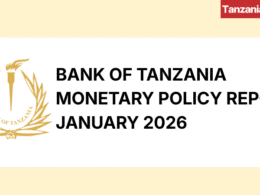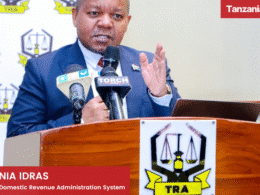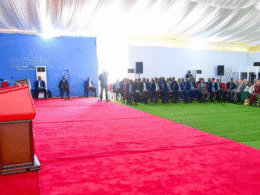Earlier in October, Moody’s Investors Service changed the Government of Tanzania’s outlook to positive from stable and affirmed the B2 foreign and local currency long-term issuer ratings.
In his statement, the rating company explains that the outlook changed as political risks in Tanzania have lessened thanks to President Samia Suluhu Hassan’s government’s new approach in promoting economic development and engagement with the international community.
“The government’s efforts to improve the business and investment climate and attract foreign direct investment (FDI), most notably in the mining and hydrocarbon industries, offer the prospect for higher potential growth and improving international competitiveness,” the statement reads.
In addition, Tanzania’s re-engagement with the IMF also has the potential to support higher government revenue generation capacity and unlock greater concessional financing from development partners, supporting debt affordability and increased social spending.
In turn, such indications that lower political risk may improve the country’s economic and financial environment support Tanzania’s capacity to face the implications of the global shock following Russia’s invasion of Ukraine.
Moody’s expects Tanzania’s moderate debt burden to remain stable and below the B2 median while inflation has remained relatively low and stable despite global price pressures.
Meanwhile, the local-currency and foreign-currency country risk ceilings remain unchanged, at Ba3 and B1, respectively.
Moody’s Rationale For the Change in Outlook
The inflows of FDI have been muted in recent years due to ongoing policy and regulatory uncertainty under the administration of late President John Magufuli, with policy uncertainty impacting investments, particularly in the mining sector.
After assuming power in 2021, President Samia Suluhu Hassan began actively courting international investors, and investor sentiment towards Tanzania has since improved, including several investments in the mining sector and renewed momentum behind the long-delayed energy projects.
Initial steps to improve the business and investment climate included relaxing regulations for foreign work permits, streamlining VAT refunds, and tabling legislation that supports local businesses.
Furthermore, ongoing efforts to improve the regulatory environment, reduce non-tariff barriers and improve the quality of national statistics offer the prospect of delivering sustained increases in potential growth.
Since assuming power in March 2021, President Hassan has traveled extensively regionally and abroad in an effort to improve international relations and attract investments.
Efforts to re-engage with the IMF have been successful in securing funding to bolster the government’s pandemic response and implement price subsidies to limit inflationary pressures in response to the recent commodity price shock.
The new administration has also taken steps to improve relations with international development organizations by moving to open the civic space and lifting some restrictions on media and political opposition, opening the possibility for additional concessional funding from development partners and easing risks to government liquidity and cost of funding.











